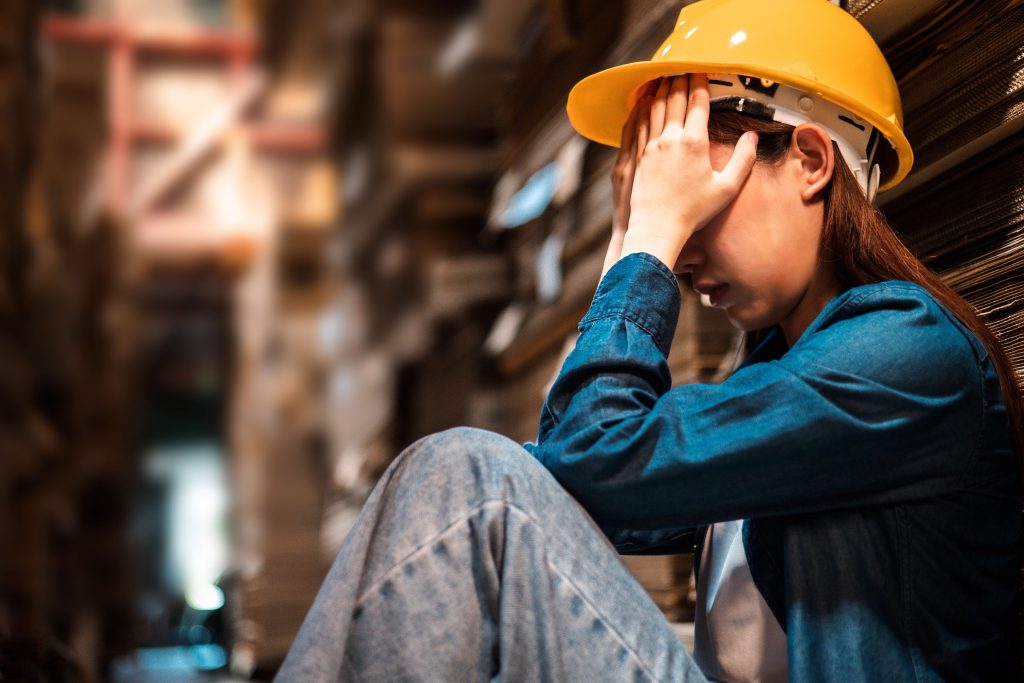Traumatic Brain Injury Risks in Construction

Working in construction comes with inherent risks; among them, traumatic brain injuries (TBIs) are a significant concern. Every day, construction workers face potential TBI risks on the job.
Head and brain injuries are common in construction
Although head injuries are largely preventable, they remain a considerable hazard for construction workers. With National Concussion Awareness Day falling in September, we can shed light on the various forms of TBIs, ranging from minor concussions to more severe cases, and underscore the importance of awareness and safety measures within the construction industry.
In the unfortunate event of a construction-related TBI, it’s essential to understand that you have legal rights and options available to you. Seeking compensation for your injuries and ensuring that your rights are protected can be a complex process, which is why consulting an experienced construction accident lawyer is crucial.
What is a traumatic brain injury?
According to Occupational Health & Safety, a traumatic brain injury affects the brain’s normal function. TBIs can happen from a direct hit to the head, a penetrating injury, or a jolt. You may be suffering from a TBI if you are experiencing any of the following symptoms:
- Headaches
- Dizziness
- Nausea or vomiting
- Sensitivity to light or sound
- Fatigue
Traumatic brain injuries can vary in levels of severity. At the milder end of the spectrum are concussions, which typically involve temporary symptoms like confusion and headaches. More severe TBIs can result in long-term complications such as impaired motor skills, cognitive deficits, mood disorders, and, in the most serious cases, coma or permanent disability.
Fall-related TBIs
Falls are a leading cause of traumatic brain injuries among construction workers. They often happen when workers are exposed to dangerous situations, such as working at heights. Common factors that can cause a fall on a construction site include:
- Lack of fall protection
- Absence of safety equipment such as guardrails
- Misuse of ladders and other equipment
- Failure to use protective gear
- Slippery or uneven surfaces
- Weather conditions
TBIs resulting from construction falls frequently occur due to a direct impact on the ground or other hard surfaces. Despite using safety gear like hard hats, the force of a direct impact can still be strong enough to cause a TBI.
Struck by falling and flying objects
In the construction industry, there’s another significant TBI risk: flying and falling objects. These accidents happen when materials, tools, or debris are propelled into the air, often due to equipment malfunctions, improper handling, or weather conditions. The risk of these objects becoming airborne increases when work zones are crowded and busy work zones.
When an object hits a worker, the impact can lead to an injury because of the force and weight involved. These accidents can result in various levels of TBIs, ranging from mild concussions to skull fractures and even penetrating wounds.
Talk to a workers’ comp attorney today
Construction workers who’ve sustained traumatic brain injuries may qualify for workers’ compensation benefits. However, eligibility doesn’t always ensure you receive benefits. Navigating workers’ compensation cases can be challenging, but having the guidance of an experienced workers’ comp attorney can make all the difference.
At the Law Offices of Deborah G. Kohl, we have a deep understanding of workers’ compensation systems in Massachusetts and Rhode Island. We work tirelessly to demand the compensation you rightfully deserve. Contact us for a free consultation with a workers’ compensation attorney who will stand by your side when it matters most.
